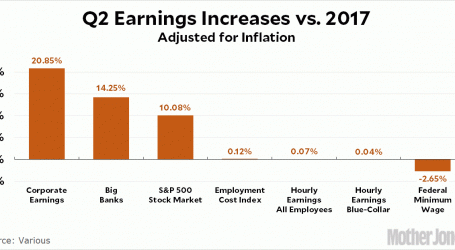Is Anyone Really Listening to E. Jean Carroll?
Mother Jones; Luiz C. Ribeiro/NY Daily News/Getty
Fight disinformation: Sign up for the free Mother Jones Daily newsletter and follow the news that matters.Is Donald Trump a rapist?
The question is at the center of E. Jean Carroll’s civil suit against the former president, in which the writer and former advice columnist accuses him of sexual assault and defamation. Carroll, who in 2019 came forward with allegations that Trump attacked her inside a dressing room in the 1990s, is seeking unspecified damages.
But is anyone actually paying attention? I can’t help but feel as though the concrete things said and done in the courtroom have failed to truly puncture the public consciousness.
It makes sense, on some level. Though Carroll’s allegations are the most serious among the sexual assault claims that have been made against Trump over the years, the public has endured years of similar stories pointing to his endless misdeeds—even these specific misdeeds. Still, I’ve still been taken aback by what has felt like a collective apathy toward the catastrophic description of a woman’s trauma.
It’s true that news outlets, including this magazine, have reported on the trial with dutiful rigor. But within the public discourse, there’s been far less chatter as the drama continues to unfold—as Carroll, deftly and movingly, testifies. Measure public awareness of E. Jean Carroll v. Donald Trump against the obsessive coverage of Trump’s four-mile hike downtown to get arrested last month, and sexual assault charges against the former president finally getting a day in court, feels strangely small. Put it up against the impeachment proceedings, and there’s no contest. Perhaps it’s because this isn’t a criminal trial; Trump, no matter the verdict, will not be a convicted rapist nor will he face real punishment beyond a potential monetary one.
Still, to pass over Carroll’s poignant testimony, along with Trump lawyer Joe Tacopina’s snarling cross-examination tactics, would be to miss several critical indictments far beyond the matter of Trump’s guilt. Here’s one telling snapshot, from my colleague Russ Choma, in which Carroll pushes back against Tacopina as he browbeats her:
When Tacopina tried to challenge Carroll about why she did not scream when Trump was allegedly raping her violently, Carroll ultimately delivered a strong rebuke.
“I’m not a screamer, I was in too much of a panic, I was fighting,” she responded to his initial query.
Tacopina pressed further—and Carroll pushed back. “You can’t beat up on me for not screaming,” she said, firmly.
“I’m not beating you up!” Tacopina said, appearing flustered.
“Women who don’t come forward—one of the reasons they don’t come forward is because they all get asked, ‘Why didn’t you scream?’” Carroll said, her voice rising. “Some women scream, some women don’t. It keeps them silent.”
“You’d better have a good excuse as to why you didn’t scream; if you don’t scream, you weren’t raped,” Carroll continued, mocking his line of questioning. “I’m telling you, he raped me, whether I screamed or not!”
At this point, Carroll began to cry.
Tacopina asked whether she needed a moment. “No, you go on,” she said icily. “I don’t need an excuse for not screaming.”
Such scenes, alternatingly maddening and captivating, feel ripped from a bygone era. Tacopina’s questions are shining examples of what not to ask a rape victim. That they are taking place in a high-profile civil suit only five years after #MeToo erupted into a global movement is perhaps the clearest evidence that accounts of sexual assault still are not taken seriously.
That Carroll’s time on the stand hasn’t reached every inch of the public discourse reveals how we treat trauma when it fails to be about punishment. It has not enticed a weary audience that has become convinced that stories of Trump’s hideous behavior, relentless and overwhelming, don’t matter. Maybe they’re even boring now. It seems there is only one question people seem to care about: Is Trump finally going to jail?
In the case of Carroll’s trial, countless factors could have contributed to such nihilism. For one, there’s her age. At 79, she is long past the point when women say they begin to feel invisible and overlooked. (In a cruel twist, Carroll’s age, according to her skeptics, underscores how much time has passed since her alleged encounter with Trump, and is therefore suspicious.)
And then there’s the lack of video or audio recordings from inside the courtroom, denying Carroll’s remarks the fuel to hit social media virality, which has become an unfortunate barometer of newsworthiness. So, we’re left to read in order to keep abreast of the trial, and reading Carroll’s description of profound suffering is no easy task; it’s somewhat understandable why one would skip over such difficult material. But then, what is lost when we fail to pay attention to those who are willing to come forward? The question is all the more urgent when allegations relate to Donald Trump, a man who, thus far, has escaped accountability for endless sins.
“I regretted it about 100 times,” Carroll said on Wednesday when asked about her decision to go public, “but in the end being able to get my day in court…I’m crying, but I got to tell my story in court.” Carroll testified in another moment: “His hand, his finger went into my vagina, which was extremely painful. It was a horrible feeling. He put his hand inside me and curved his finger. As I sit here today, I can still feel it. Then he inserted his penis.”
Imagine that those words emerged not today but in October 2016. Would they have carried the same electoral threat that the Access Hollywood tape did? There’s a reason Carroll’s lawyers fought to play the recording as evidence for jurors. But nearly seven years after unabating scandals and now a likely Biden-Trump rematch, it’s somewhat incredible to recall how much “grab them by the pussy” once shocked us. Trump and his henchmen no longer surprise us. But why aren’t we horrified?





